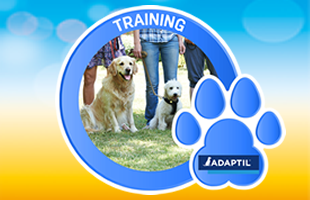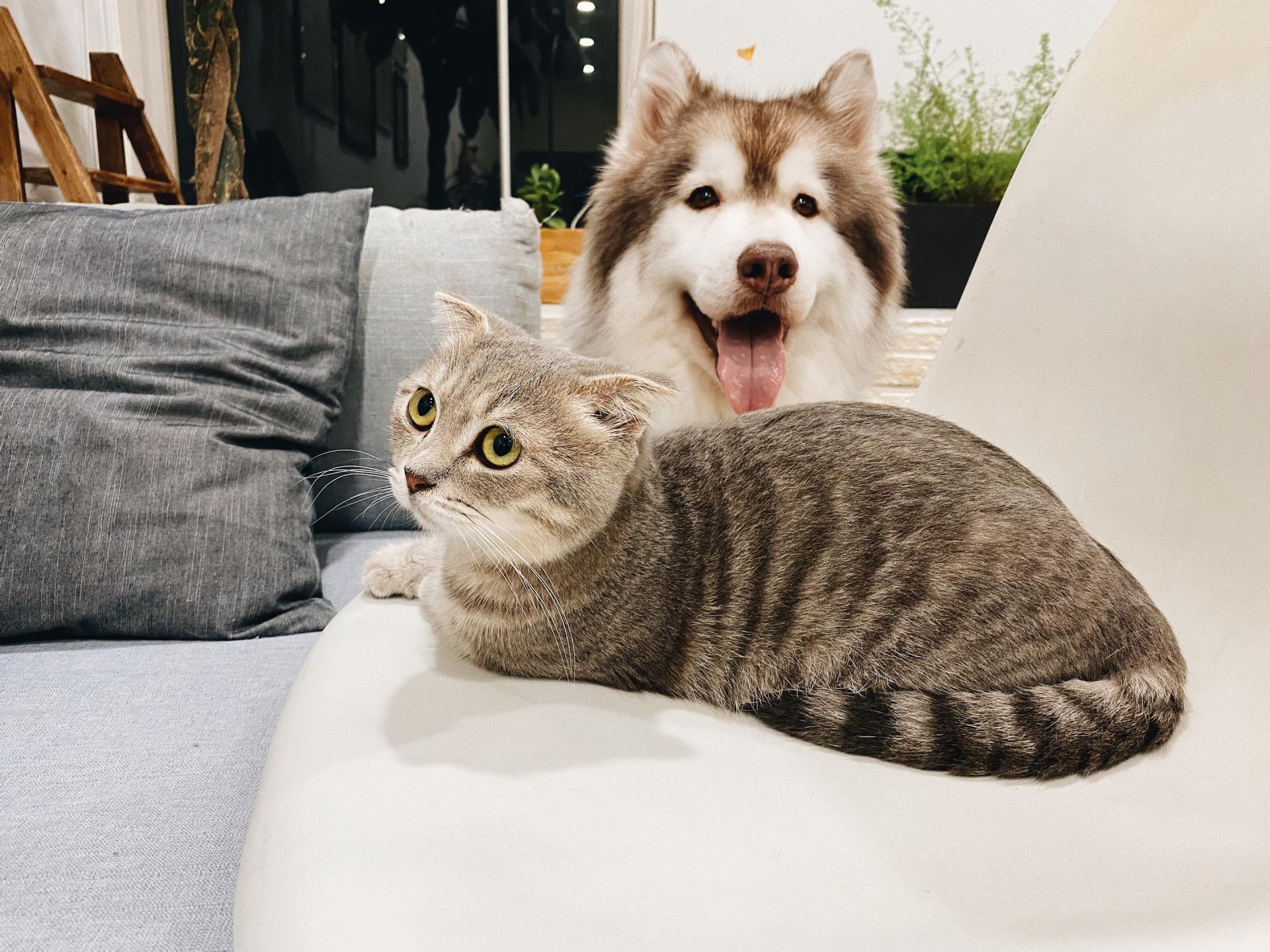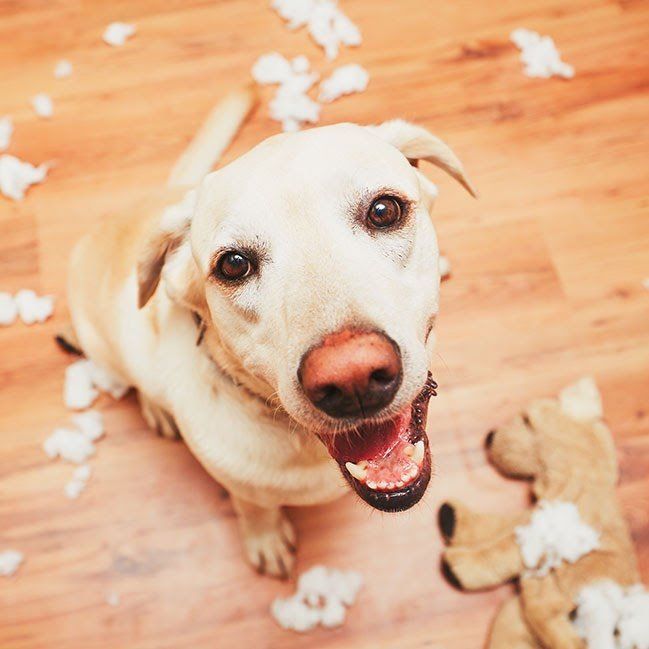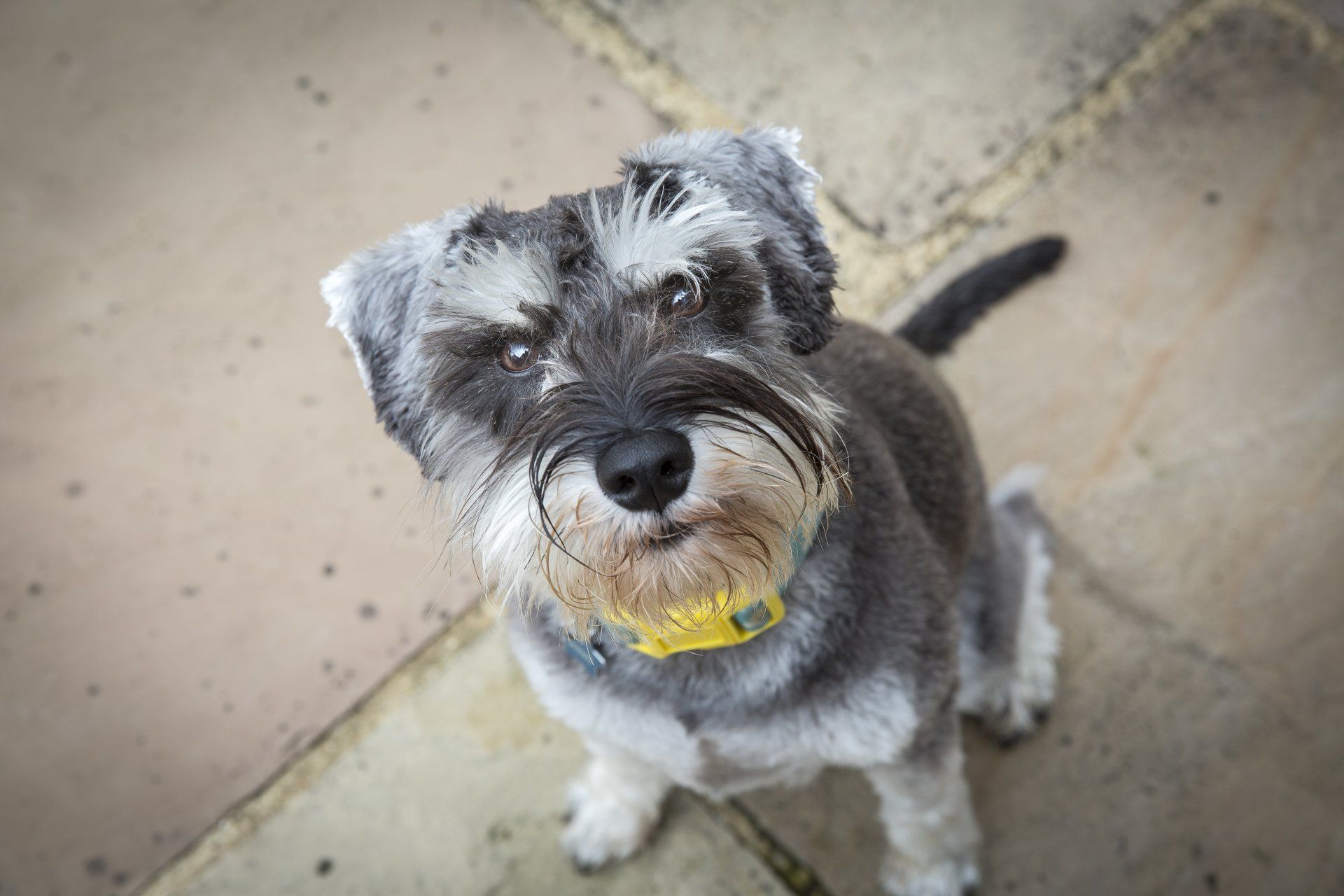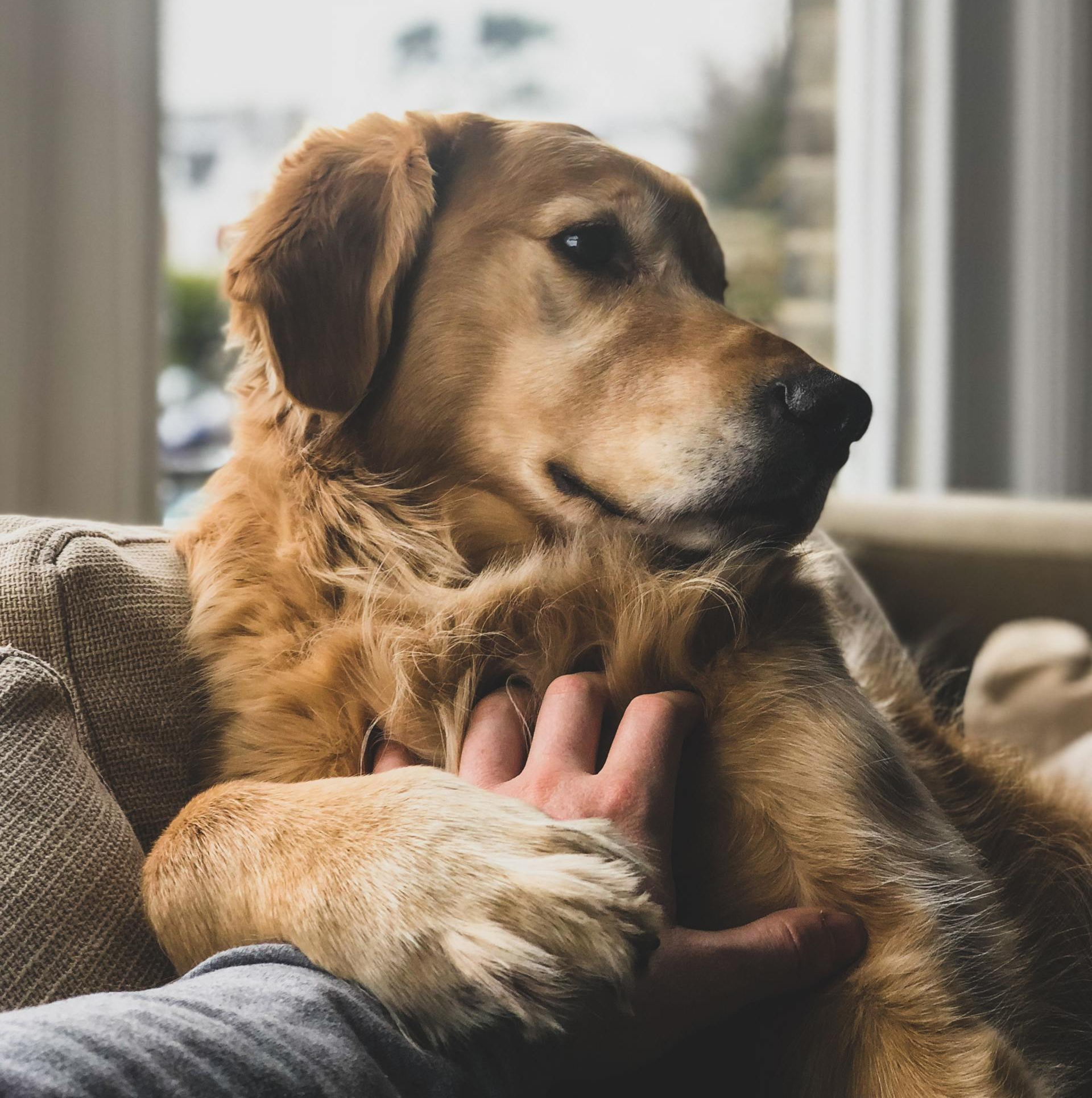Advice for Dog Owners
Advice for Dog Owners
Challenge
Challenge
Need advice? Read our blogs below.
New Puppy Owner?
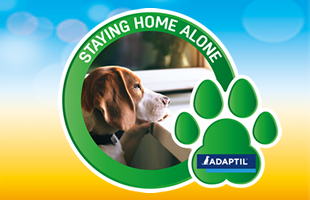
Dogs are social animals so when it comes to being alone for long periods it can be challenging for them. There are a few things you can do to help them learn that being alone isn't so bad. What to provide: 1) A comfortable place where your puppy can stay alone safely. Use a crate big enough for a sleeping area and a toileting area or make a pen or just a puppy-proofed room e.g. a utility room. You want to make sure there are no wires that can be chews or any other item you would not want to be ruined. They will need an area to move around in, access to water and toys. 2) Distractions to keep them occupied are ideal. Provide food-stuffed toys or kongs filled with frozen liquid food (yogurt, chicken stock, mashed banana, dog-safe peanut butter etc.) to encourage licking behaviour as this is self-soothing. 3) Leave the radio or TV which will keep them company and also cover up any outside noises they may bark at. 4) Departure and homecoming: Initial daytime departures should be when your puppy is tired and likely to sleep (they sleep a lot so this is easier). When you return, wait until your puppy is calm before interacting with them. Do not ignore them if they are distressed. If persistent then try a simple command followed by a treat to calm them down. It is better not to make a big deal about your return. Make sure all 4 paws are on the floor when you reward them. 5) Simple cue is an option to help your dog understand that you are going out. For example a wave and ‘bye’ or an index finger and ‘i’ll be 1 minute’. If you want to find out what your dog is getting up to or how they are coping when alone then consider asking neighbours to keep an ear out if they are around. Another option would be setting up a doggy camera so you can monitor. You might find out that something in particular sets your dog off when you are not there, for example post through the door. If you do find any destruction when you return then just ignore it, it isn’t personal and they’ve only destroyed it because they were so stressed that they reached the point that they had to express it. Never tell them off as this will just increase their stress and make things worse. You can help train your dog to be alone by starting small, even in a separate room and keep out of sight for a short while. Weh you are confident they are quiet return and provide a treat. Build this up so you are out of sight for longer periods and reward if they are calm, haven’t made any mess/destruction and haven’t barked. If they do bark or whine then do not return to them. Until they are quiet. If you reward the wrong moment, they will learn that if I bark or whine, then you will return, which is what they want and therefore will do it again. Remember that every dog is different and for difficult cases it is recommended to speak to a qualified dog behaviourist and speak with your vet.
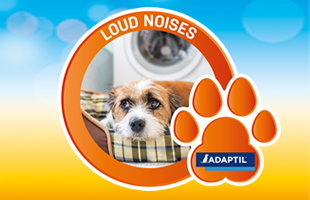
You want to train your puppy to accept unusual noises and other “scary” things. You want to begin this slowly, you can desensitise them to accept noises. If your puppy is surrounded by a busy noisy environment, distract them with toys and reward good and calm behaviour. For outside noises like fireworks or thunderstorms you can try and get them used to the noises as long as it is well away from the busy firework period. Using a programme to do this is ideal, it is available as a free resource from the Dogs Trust you can also purchase as a CD. Make sure you introduce this gradually. Exposing your dog to sounds of fireworks, rain, gunshots, thunder and much more to quickly could build up a fear. Start super quiet, at the volume they can barely hear. Day after day, increase the volume gradually and stop increasing the volume if they seem to react badly to it. Reward your dog when they respond well. This process can take quite a long time, so it is better to do it long before or after the firework season. If there is a sudden episode of thunder or fireworks help mask the noise by closing curtains and turning the TV/radio on and distract them with treats and toys. We have more tips for fireworks night here .
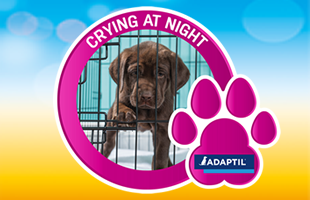
Create a “puppy bedroom” Choose a warm and comfortable sleeping space for your puppy with a bed and/or a blanket. It can also be beneficial to place something that smells of you like an old t-shirt in their bed to provide additional comfort. The transition throughout this period can be a long process and may take time for your dog to stop crying and become quieter and therefore will need a lot of your patience. If there is still whining when left alone, start to time the duration of the time they are crying, then you can monitor and note how long they take to quiet down. Keeping track of progress is beneficial to see if things are improving over time. Preparing for bedtime: 1) Give them dinner early, ideally 3 hours before bedtime, this will help them not to need the loo overnight. Limit food and water, do not give them any an hour before bedtime. Going to bed with a full stomach and bladder means you'll likely be taking your pup out more than once during the night to let them out. 2) If you are early to bed and late to rise, you'll have to make at least one midnight trip to keep them from going to the bathroom inside, but as your puppy gets older and gets used to the toilet training this will become less frequent. 3) Provide active play and a walk is possible, 2 hours before bedtime - this will help tire them out. Make sure your puppy is getting lots of physical and mental exercise, especially if your puppy is a particularly active breed and as your puppy gets older. 4) Try not to be too excitable to help calm them down. Wait until they are naturally sleepy before leaving them, puppies sleep a lot so this should be easy. What NOT to do: -If your puppy cries, wait to see if they settle down before going straight to see them. If you go to see them every time they cry, they will learn that their crying will achieve this. -Start as you mean to go on, if you want them to sleep in a separate room then avoid letting them sleep in your room at all...they don't know what they have never had. -Never use your puppy’s bed as a punishment, this could create stress at bedtime. If your puppy seems extremely stressed, they may not like their crate, being alone and away from you, the room, or a room separate from you. You could provide a puppy pen or area near your bed/bedroom. This can make your puppy feel more comfortable and less stressed as they are closer to you throughout this adjustment process. However, if your dog is sleeping in the same room as you, the transition to being a quiet pup that doesn’t bark when left alone can be a longer one. You will have to work on this and be patient. If your puppy cries, wait to see if he settles instead of coming to pet him. Otherwise your puppy could learn the wrong lesson that crying will get him cuddles! If you want them to sleep in separate rooms then avoid letting them sleep in your room, otherwise they will ask for it again.
Every successful product is the fruit of hard work and this applies to every field of business. Intuition alone is not enough to create a product that people will love and use. You also need to do your research, thinking, planning, differentiating yourself and more. Write about some of the challenges you faced in designing this product and what steps you and your team took to overcome them.
Information for dog ownersners
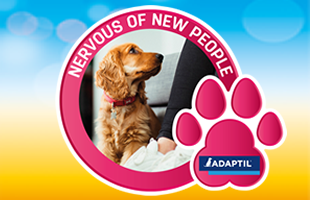
If your dog is nervous of visitors, then it's almost understandable, it's their home and they didn't invite a complete stranger to come into their home. Guests are a break in the dog’s daily routine and therefore are very exciting or scary. Depending on your dog’s temperament, the guests might be perceived as trespassers. For some cases it is not always a simple fix, especially if your dog has reacted in a certain way for a long time. It is advisable the advice of a vet or qualified behaviourist to help you put a plan into place to ensure you are reacting and rewarding in the right way. The earlier you can tackle this, the better. What you can do: ● When visitors are over it’s important to teach your dog what you want them to do. Give your dog clear instructions and remember how you want them to act in the situation e.g. no jumping up. Short-term you can use a barrier or gate that will separate your dog from the front door. This won’t replace training, but it will help while you’re working on this behavior. ● Leave a sign outside and a pot of treats for visitors to give your dogs when they come in, if safe to do so. Your dog could soon learn that visitors arriving is a great thing, as I get rewards! Tell all guests this before they arrive and after a few minutes or after a while if your dog is still being calm and relaxed then you can allow your visitors to throw your dog treats. ● Ask guests to ignore your dog completely, this includes no petting, talking, looking at or treats. Your dog can get fearful if the visitors come straight in and to them. Ask your visitor to only interact with your dog when your dog has gone to them or when you are all sitting down after a while and the dog looks calm. Do not allow your visitors to follow or pursue your dog, if your dog is trying to get away or hide or in their safe haven. ● Don’t force your nervous dog to stay too close to the source of fear and do NOT punish your dog if they barks or shakes, this will only make your dog more distressed. Mild and positive exposure is best, your dog will then learn over time that there is nothing to be afraid of. ● Go slowly when exposing them: first approach the fearful thing from a good distance. Reward when they remain calm and DO NOT force them to continue if unhappy. Over time move closer continuing with all the rewards when behaving well. The goal is to have your dog in a relaxed position when visitors arrive and to enjoy the visit. Therefore, you want to teach your dog that they should stay calm and give interactive relaxed behaviours with your visitors to get rewards. Use your dog's bed or safe haven as a comfortable place that your dog associates with wonderful things and use this as a training tool. Providing distractions or things that are more interesting such as puzzle toys, stuffed or frozen kongs filled with high-value treats like chicken or peanut butter (dog-friendly) is a long-lasting option. Begin to practice this in different scenarios; especially at the front door or in distracting situations. Recruit someone else to help, a family member, friend, or neighbour to help you. Always have yummy treats in your pocket and provide them to your dog whenever they are relaxed or calm. Ask your helper to ignore your dog at all times unless the dog walks over to them and is calm and seeks their attention. Then have the helper go back outside and repeat the exercise. If at any time your dog gets distracted, ask him to sit/go to their bed or a calm behaviour and reward after. Always provide these lasting high value food puzzles or treats before a planned visitor arrives, they should soon start to associate the positivity with the visitor or keep distracted to a point where visitors don’t matter or aren’t a worry.
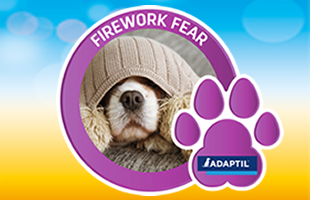
Fireworks can be scary for people, so imagine how dogs feel with sounds which are so much louder to them with their incredible ears. Firework fears are very common in dogs. Signs to look out for sound sensitivities or fears during loud noises like fireworks include: ■ Trembling and shaking ■ Clinging to owners ■ Whining or barking excessively ■ Cowering & hiding ■ Trying to run away ■ Soiling inside the house ■ Pacing and panting ■ Refusing to eat ■ Ears back ■ Drooling What to do: -Dogs enjoy a calming area to go as a 'safe place', just like their own den in the wild. If they go there you don't have to follow or give them attention, just leave cosy blankets, bedding and a favourite toy and give them space, a crate is ideal for this! -If your dog will accept food or toys during these loud times, then leave a kong or food puzzle to keep them occupied. Try to reduce the impact on your dog by keeping them inside with all the curtains, windows, doors closed and turn on the TV/radio to mask the sound. -If you know the fireworks are coming, walk your dog early in the light and avoid having them outside, even in your garden during the events. -Make sure your dog’s microchip is up to date in case they get scared and run out of fear. -Be caring if your dog comes to you for support, offer genuine affection without being too sympathetic. Keep the mood light without too much concern that may transfer you are worried too. As soon as your dog has calmed a little, try to distract them into a game with a toy or into using their nose to find a treat. However it is best to keep your distance from a dog that is hiding or cowering away behind furniture or in their safe haven den - they are there to get away and be alone. -Don’t leave your dog alone, just knowing you are there and your presence will be reassuring to them. -Do NOT punish your dog, even if they make a mistake, this will increase their worries! The best thing to help your dog with loud sounds and fireworks, is to carry out a desensitisation programme you want to do this early, as a puppy or at least 6 months before the fireworks season. Even though habituation and training to get used to sounds is best done with dogs when they are puppies you can still help when they are older. Use the ‘Sounds scary’ free download resource from The Dogs Trust. Please consult your veterinarian if your dog has severe signs or really affected by fireworks, or local accredited behaviourist for help and advice.

Dogs are social animals so when it comes to being alone for long periods it can be challenging for them. There are a few things you can do to help them learn that being alone isn't so bad and help them get used to it. Provide a comfortable 'safe place' where your dog can stay alone and ensure it is a nice place for them to be, full of cosy blankets, chew toys, food puzzles and other distractions to stay occupied. Consider playing music (something light, light classical or where there is a lot of talking). When you do leave, which everyone will have to do at some point, try not to make a big deal about leaving or when you come back. To help them learn that it's not worrying or a fuss to be alone and that they can be calm and play until you return. When arriving only provide attention and fuss when they are calm and all 4 paws are on the floor. If this is quite hard as they are extremely excited for your return then ask for a simple command that requires them to be still or calm, such as a sit and then after they follow this calm command that you've asked them, provide a treat. After a while when you return and frequently provide treats for 4 paws to the floor or for a calm command they will provide these more often. Another option to help your dog understand that you are going out is to add a simple cue to let them know that you are going. For example a wave and ‘bye’ or an index finger and ‘i’ll be 1 minute’. Provide food-stuffed toys or kongs filled with frozen liquid food (yogurt, chicken stock, mashed banana, peanut butter etc.) to encourage licking behaviour as this is self-soothing and can help calm them without you there. If you want to find out what your dog is getting up to or how they are coping when alone then consider asking neighbours, if you are close with them, to keep an ear out if they are around and nearby during the day. Maybe a better option would be setting up a doggy camera so you can monitor them while you are out and see what they get up to. You might find out that something in particular sets your dog off when you are not there, for example post through the door. If you do find any destruction when you return then try to ignore it, it isn’t personal and they’ve only destroyed it because they were so stressed that they reached the point that they had to express it through that way. Never tell them off as this will just increase their stress and make things worse. You can help train your dog to be alone by starting small, even in a separate room and keep out of sight for a short while, then when they do not bark return and provide a treat. Build this up so you are out of sight for long periods and reward if they are calm, haven’t made any mess/destruction and haven’t barked. If they do bark or whine then do not return to them if you can and definitely do not reward them. They will learn that if I bark or whine, then you will return, which is what they want. and therefore will do it again. Remember that every dog is different and for difficult cases it is recommended to speak to a qualified dog behaviourist and speak with your vet.
